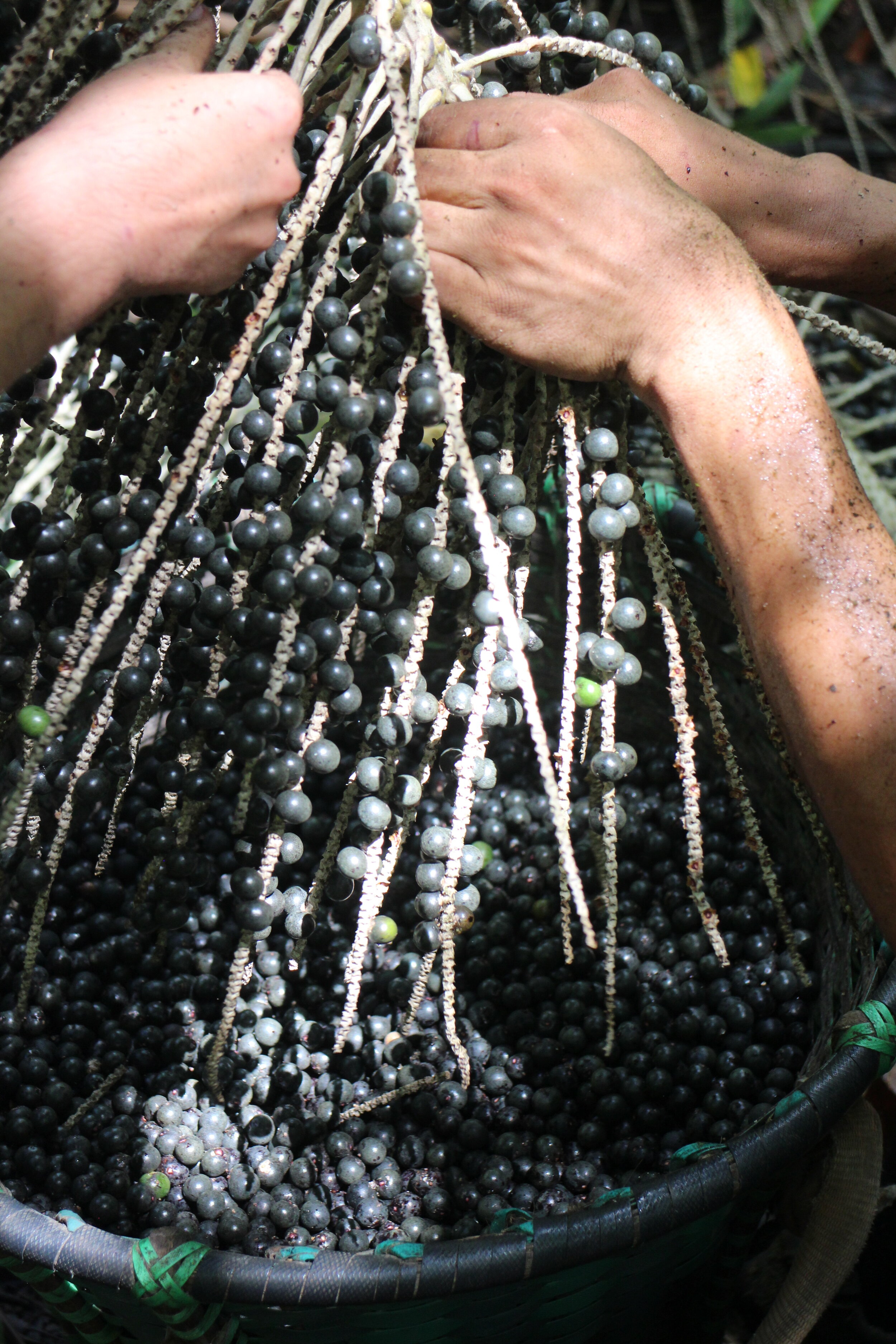
Grow Wild is promoting forest conservation through the use of trading. For the benefits of native communities and the local ecology.
Development does not come from money alone, it comes from knowledge, and from education, which is why Grow Wild donates 1% of its revenues for workshops in education of forest conservation for the communities we buy from and who will benefit the most.
This year we have donated our 1% to AAFAU, The Agricultores Familiares do Alto Urupadi. Together we are helping to fund the build & renovation of a shop for the indigenous communities in Alto Utupadi. The intention of our donation is to guarantee a functioning shop for the women from the community of Sateré-Mawé as well as other traditional communities of Alto Urupadi.
The Sateré-Mawé are an indigenous people of Brazil living in the state of Amazonas. They occupy The Andirá-Marau Indigenous Reserve, covering 7,885 square kilometers of forest, protecting and living sustainably off the land.
The shop will allow the women to sell their products directly and generate a vastly increased income in comparison with the prices they are currently receiving from middlemen traders. It will strengthen the activities of the women who are caring for their family and increase their food security which has been severely impacted by COVID-19.
Not only will the women generate more value from their products, but they will also grant local consumers direct trade access to their unique & locally harvested products. The shop will cut out the middlemen who are currently paying far below market prices for the products due to the remoteness of the region. The disconnectedness of the area has only been exacerbated by Covid-19. The women will gain income security and price insulation from external market forces whilst the local communities will gain fair access to local value products. In this way, we hope to promote social change and equality within the family unit.
The money from our donation will renovate the shop with paint, protective fences, a roof, and display shelves to create a welcoming atmosphere for customers, especially women customers, so that they can experience the day to day lives of the women in the communities through their work, and their agricultural and artisanal products.
The young women, who currently take care of the fields and their family, will gain experience in running a business, maintaining cooperation, and working collectively as the driving force of the new marketplace. They will also gain access to new products such as beijú, tapioca, tucupí, fruits, sweets, and toys.
We hope this initiative will have a ripple effect through other local communities, involving more and more women from the region, because the shop will be an exhibit of commercialisation, where women can feel empowered to participate and grow a female economy in Amazonia.
Educate.
We ensure they are safe and free in the land, there is community structure and good access to food and water. We are also operating workshops alongside our partners to provide education and support for all the people involved in the supply chains, to help them see the forest in a different light.
Preserve.
Açai requires a full set of climate specific resources which are provided by other plants. If you take these fruits away from the açai and reduce the local biodiversity, the yield of the açai palm diminishes. So it is important that natural ecology is maintained, not only for the health of the planet and that of the local region but also for the long term economics of people whose income relies on the picking the açai . Balance is essential for consistent supply and the support of numerous livelihoods.
Thrive.
Surrounding açai palms with other native fruits such as Buriti and Mura Mura not only increases the yield of the forest’s natural cycle but also diversifies the income streams available to the natives, through the sale of additional products. This shields them from both market fluctuations and seasonal variance in fruit production. Our aim is to provide access to markets and to knowledge to help unlock potential opportunities for the indigenous people and the local environment.




